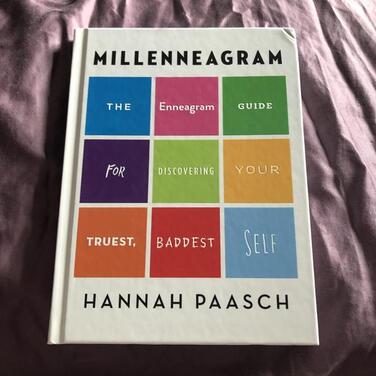|
The reasons we are here and "why" we wish to empower others is what motivates people to work with us. Simon Sinek is the pioneer that brought us to look at the "why" behind the "what".
Sometimes our "why" is obvious. Other times nebulous. If you are very clear on "why" you are here to be of service to others, is your "why" showing up in your outreach? If you are not clear, what would help you get clear? Simon noted that people and companies that started with their "why" had a much better connection to the community they served, than those that do not. This is a huge deal if your goal is to: 1) deliver authentic services with integrity and 2) grow a sustainable successful business/company! Today's resource is an article about when it is good to "why". Enjoy! Read the Simon Sinek article on when to "why" here: https://simonsinek.com/discover/re-when-to-find-your-organizations-why/ “Which is it?!” My client asked me, with a combination of passion and frustration.
The classic question was surfacing of just how much responsibility we should take in creating outcomes. There is a spiritual principle being taught. It states that we are 100% responsible for every single thing that happens to us in our life. 100%?! What about the dog barking at 3 am? What about my daughter rebelling? I created those? In today’s exploration we are going to unpack this teaching and see just where those lines are drawn. First, let’s make a distinction to save semantics from interfering. The distinction I’m offering is to view “responsibility” through the lens of: Response – Ability Second, we are living in a world with other people and those people have free will, just like us. Taking direct ownership for other people is a burden we need not carry, nor is true. Are we responsible for their choices? No. Are we able to respond to their choices in ways that help things go right? Yes. Third this “spiritual teaching” can have a negative impact on us. To be 100% responsible for everything that happens to us, including other people’s choices, is a heavy burden to carry. But to be 100% response-able to respond to any situation that arises, including the barking dog at 2 am, is the birthplace of our personal power. We do not have "control" over others, but our choices do indeed influence outcomes. When we become more self-aware of our response-abilities we become more masterful at helping things go right. When I was growing up in the 80's and 90's, seeing a therapist or a pastor were the two primary ways we could get guidance on handling life’s hardships. In current times, this thing called coaching is now on the scene, providing yet another option to choose from. Pretty cool! Yet, often misunderstood in its newness.
Because the formalization of coaching is only a few decades old, it is considered still in its infancy compared to psychoanalysis, which dates back to the 1930's with the work of Sigmund Freud, et al. According to Dr. Kimberly Key, in her article “How the Evolution of Psychology Gave Birth to Counseling”, Willhelm Wundt opened the first psychology lab in 1879, using introspection. She goes on to say, “Psychology has generally been defined as treating mental illness and counseling psychology was born to address mental health issues.” But, what if we still want help in life, help reaching a new potential, help understanding our relationship to our life, but we don’t need therapy or aren’t struggling with a mental illness? Then what? That is where coaching steps in. Coaching is here because there was a missing piece to psychology. This is full self-actualization of the human. If psychology models were based on what is wrong and helping people get healing and help, then coaching helps us focus on what is right, our gifts and strengths and building an amazing and masterful relationship to one’s life by self-actualizing. Counseling helps clear the weeds, coaching helps plant new seeds. Both have their place according to the need of the individual. In essence, counseling, aka therapy, is perfect if you need emotional healing, or facing issues that have become bigger than you can emotionally handle. Coaching is perfect when you have come to edge of all you know and are ready to reach an entirely new level in your life. In other words, when you are ready to self-actualize. Hope your September is going great! This week I have a fun-hearted resource for your library. If you are an Enneagram enthusiast, this is a must have.
If you use the Enneagram and want a fun and light-hearted resource that is also client friendly, then you will want to add the Millenneagram: Guide For Discovering Your Truest, Baddest Self to your library. The author Hannah Paasch puts a modern spin on this very ancient tool, helping you quickly connect to your underlying motivations, fears and inner-most authentic self. Thank you coach Tabitha for finding this little gem. Have a great week! Last week we looked at trust in ourselves by trusting our gut instincts and intuition. This week I came across an article by the Harvard Business Review on trust that has been lost in business.
I felt this would be an important resource to share, especially for us business owners. The Harvard Business Review (HBR) is conducting a five part series on trust. As always, they deliver! Here is one statistic that struck me: "Creating trust, in contrast, lifts performance. In a 1999 study of Holiday Inns, 6,500 employees rated their trust in their managers on a scale of 1 to 5. The researchers found that a one-eighth point improvement in scores could be expected to increase an inn’s annual profits by 2.5% of revenues, or $250,000 more per hotel. No other aspect of managers’ behavior had such a large impact on profits." And: "Trust also has macro level benefits. A 1997 study of 29 market economies across one decade by World Bank economists showed that a 10-percentage-point increase in trust in an environment was correlated with a 0.8-percentage-point bump in per capita income growth." Again and again we find that emotional intelligence has an impact on: bottom lines, connection to the client/customer and happiness at work and home, to name a few. Below you can access the full HBR series on trust, its importance and how to foster it. The Trust Crisis: https://hbr.org/cover-story/2019/07/the-trust-crisis |
Archives
June 2022
Categories
All
|



 RSS Feed
RSS Feed